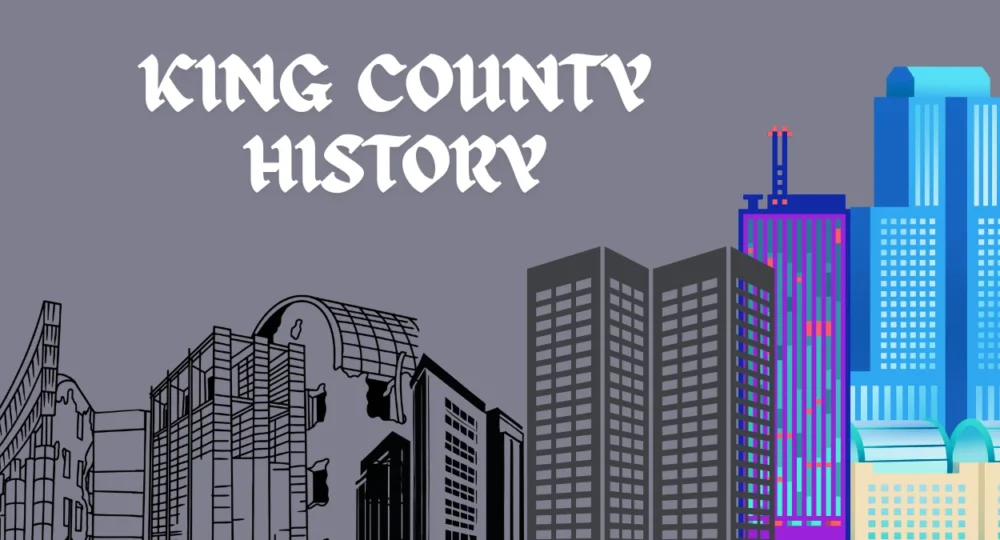History & Culture

History & Culture
Nestled between the snow-capped peaks of the Cascades and the waters of Puget Sound, King County stands as the beating heart of the Pacific Northwest. With a projected population of 2,283,551 in 2025, it is not only the most populous county in Washington State but also one of its most diverse and dynamic regions. King County’s demographic tapestry—where over 19% of residents identify as Asian, nearly 11% as Hispanic, and more than 6% as Black or African American—reflects a community shaped by waves of migration, innovation, and cultural exchange.
The economic engine of Washington, King County boasts a median household income of $122,148, outpacing every other county in the state and underscoring its role as a powerhouse for technology, commerce, and creativity. Home to global giants like Microsoft and Amazon, as well as a thriving network of startups, artists, and educators, the county’s influence extends far beyond its borders.
Yet, King County’s value is not measured by numbers alone. Its neighborhoods pulse with artistic energy, culinary innovation, and a commitment to equity and sustainability. From the historic streets of Seattle to the rapidly growing Eastside, King County’s communities offer a rich mosaic of experiences, traditions, and aspirations.
This article embarks on a journey through King County’s past and present, tracing its indigenous roots, pivotal moments in American history, and the forces that have shaped its neighborhoods and economy. By exploring King County’s enduring legacy and ongoing evolution, we reveal why this remarkable county is essential to the identity—and the future—of Washington State.
Section Summaries
1. Indigenous Roots: The First Peoples of King County
Long before European explorers arrived, King County was home to vibrant Indigenous cultures with deep connections to the land and waterways. The Duwamish, Muckleshoot, Snoqualmie, and other Coast Salish tribes shaped the spiritual and ecological foundation of the region. Their legacy lives on today through language revitalization, cultural centers, and ongoing environmental stewardship.
🔗 Read more
2. European Settlement and Early American Pioneers
From the late 1700s through the 1850s, explorers, fur traders, and American settlers began mapping, trading, and ultimately transforming the region. European contact disrupted Indigenous lifeways while ushering in new industries, treaties, and territorial claims. The Denny Party and others who arrived in the 1850s laid the groundwork for permanent settler communities.
🔗 Read more
3. Formation and Renaming of King County
King County was officially formed in 1852 and originally named for a pro-slavery politician—William R. King. In a powerful symbolic shift, it was rededicated in 1986 to honor Dr. Martin Luther King Jr., reflecting the county’s modern values of equity, inclusion, and civil rights leadership.
🔗 Read more
4. Pioneer Era: Logging, Railroads, and Growth
Between 1850 and 1900, King County’s booming forests, rivers, and railroads drew loggers, farmers, and laborers who transformed the landscape. Logging towns and rail corridors laid the foundation for what would become Seattle, Renton, Kent, and beyond. This era defined early King County infrastructure and community patterns.
🔗 Read more
5. Urbanization and Transformation (1900–1945)
The early 20th century brought explosive growth to Seattle and the wider region. Industries like shipbuilding, aviation, and manufacturing thrived while annexations expanded Seattle’s boundaries. World Wars I and II brought both economic expansion and profound social challenges, including displacement, labor unrest, and migration.
🔗 Read more
6. Postwar Boom and Suburban Expansion
From 1945 to 1980, King County underwent a suburban explosion. Infrastructure projects, housing booms, and federal support programs fueled massive demographic and spatial changes. New suburbs like Bellevue and Kirkland became family havens, while debates around equity, segregation, and farmland preservation began to emerge.
🔗 Read more
7. The Tech Boom and Modern King County
Since the 1980s, King County has become a global innovation hub. Microsoft, Amazon, and a constellation of startups transformed both the economy and built environment. With this growth came prosperity—and challenges: housing inequality, displacement, and infrastructure strain. Today, the county is a leader in both tech and progressive policy.
🔗 Read more




